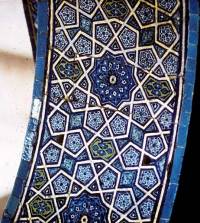Overview
Introduction - Start Here!
Style and Tone
When and Where
Glossary
News
1 | 2 | 3 | 4 | 5 | 6 | 7 | 8
Vig-Net Series
1 | 2 | 3 | 4 | 5 | 6 | 7 | 8
Results
1 | 2 | 3 | 4 | 5 | 6 | 7
Introduction - Start Here!
Style and Tone
When and Where
Glossary
News
1 | 2 | 3 | 4 | 5 | 6 | 7 | 8
Vig-Net Series
1 | 2 | 3 | 4 | 5 | 6 | 7 | 8
Results
1 | 2 | 3 | 4 | 5 | 6 | 7
“Patterns emerge and disappear all the time, though there's no pattern in what makes a good story.”
Jo.
The Ideal of Pattern consists of the aspects of Order and Chaos. It deals with adherence to and deviation from consistent rules. Such Muses are particularly curious, seeking to decipher method and order wherever they can find it, or disguising their own methods as they require.
Muses of Pattern have power over themes of simplicity, complexity, consistency and running themes, repetition, deviation and randomness. They believe that the course of the Narrative is governed by characters' knowledge and the gaps therein. Hence, when a Muse of Pattern wants to use their Skills to manipulate the Narrative of a Vignette, they must act to change that knowledge.

The Strife Skill governs uses of powers to attack others. With Pattern, this could mean forcing someone into a pattern that dictates that they are harmed, or out of one that would protect them.
Some examples of applications at different power levels are:

The Subvert Skill governs uses of powers to obscure information and deceive others. With Pattern, this could mean making something appear to follow a pattern that it doesn't, or causing misleading foreshadowing.
Some examples of applications at different power levels are:

The Seek Skill governs uses of powers to gather information. With Pattern, this could mean understanding the rules behind a phenomenon, or seeking out aberrant cases.
Some examples of applications at different power levels are:

The Sculpt Skill governs uses of powers to modify objects. With Pattern, this could mean making something more or less similar to other objects of its type, or making something suitable for its foreshadowed purpose.
Some examples of applications at different power levels are: